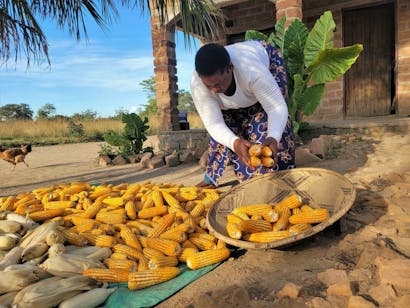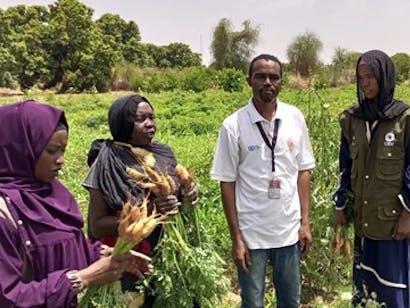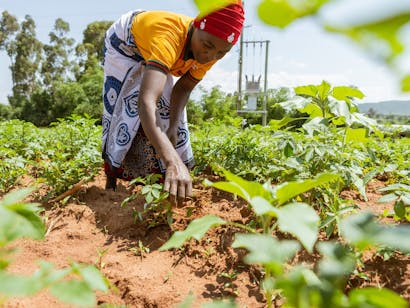Resilience work in Uganda in times of Corona
Since January, the region of Otuke, in Uganda, has been experiencing dry conditions, characterized by sporadic rain. COVID-19 and its lock down implications have added up on the plate of communities heavily dependent on rain-fed agriculture. This article not only highlights their struggle, but also shows how resilience work under a challenging context, has proved to be useful and continues.

The corona measures taken by the government on food distribution, are mainly aimed at the poor in the city, like the people who live in slums and hand to mouth around the city of Kampala. But village population is wrongly assumed to be fair. And with food stocks from previous season, there is no national food security study report.
Impact of lockdown on food production
The lock down is preventing optimizing food and crop production, seeds and harvest sales and access to information.
With the support of CARE Nederland and Partners for Resilience, community members have in the last years increased their resilience among other things by diversifying livelihoods and taking into account weather forecasts. Rainfall was expected to be peaking in the end of April and beginning of May. In normal practice, men and women together with their children would be seriously planting crops for the first season, to optimise food and crop production. But how can they do it when a full lock down and a strict surveillance prevent them from moving freely outside of their houses and villages?
In addition, evening markets and makeshift markets of Wednesdays and Saturdays usually punctuate the lifestyle in villages at this time. Now that those gatherings are not happening anymore, people can’t buy seeds and those who do not have a radio have no access to information.
Model farmers have become relief providers and saviors in a COVID World
The Partners for Resilience programme has since 2012 trained model farmers’ and allowed them to increase food production and stock. Survey showed that within for 30 of them who were trained, 23 are today food secure thanks to adaptive measures despite the challenges posed by the lock down. 100+ extra (adopter) farmers have food to eat and seeds to plant.
Food insecurity have caused thefts in model’s farmers areas. But despite that, the latter are supporting peers. While there is a lack of support from government for communities in most villages, they provide relief distribution to women and elderly. They also provide seeds and crops to the youth and women in exchange for work in the farm, and give them sessions on planning, management and value addition for agricultural produce.
In the current crisis, more youth and women are gaining skills to do climate smart agriculture and increase resilience. More is needed to support communities hit hard by the lock down, but the resilience work continues.
“The lockdown came as a surprise to most communities. Only few households had prepared. It is a moment to learn the hard way”.
Model farmer Kelle Anyess

A lesson for men
Most men working in urban areas returned to villages to be fed by their wives. Lockdown due to COVID-19 is a big lesson learnt by them. Many of them pledge to save income and, in the future, support their wives with money to compliment efforts they are doing today.
One of them is Apar Tonny, a 23 year old that planted 4 acres of fast maturing cassava for food security and income in Oyet Waarr village in Orum.


